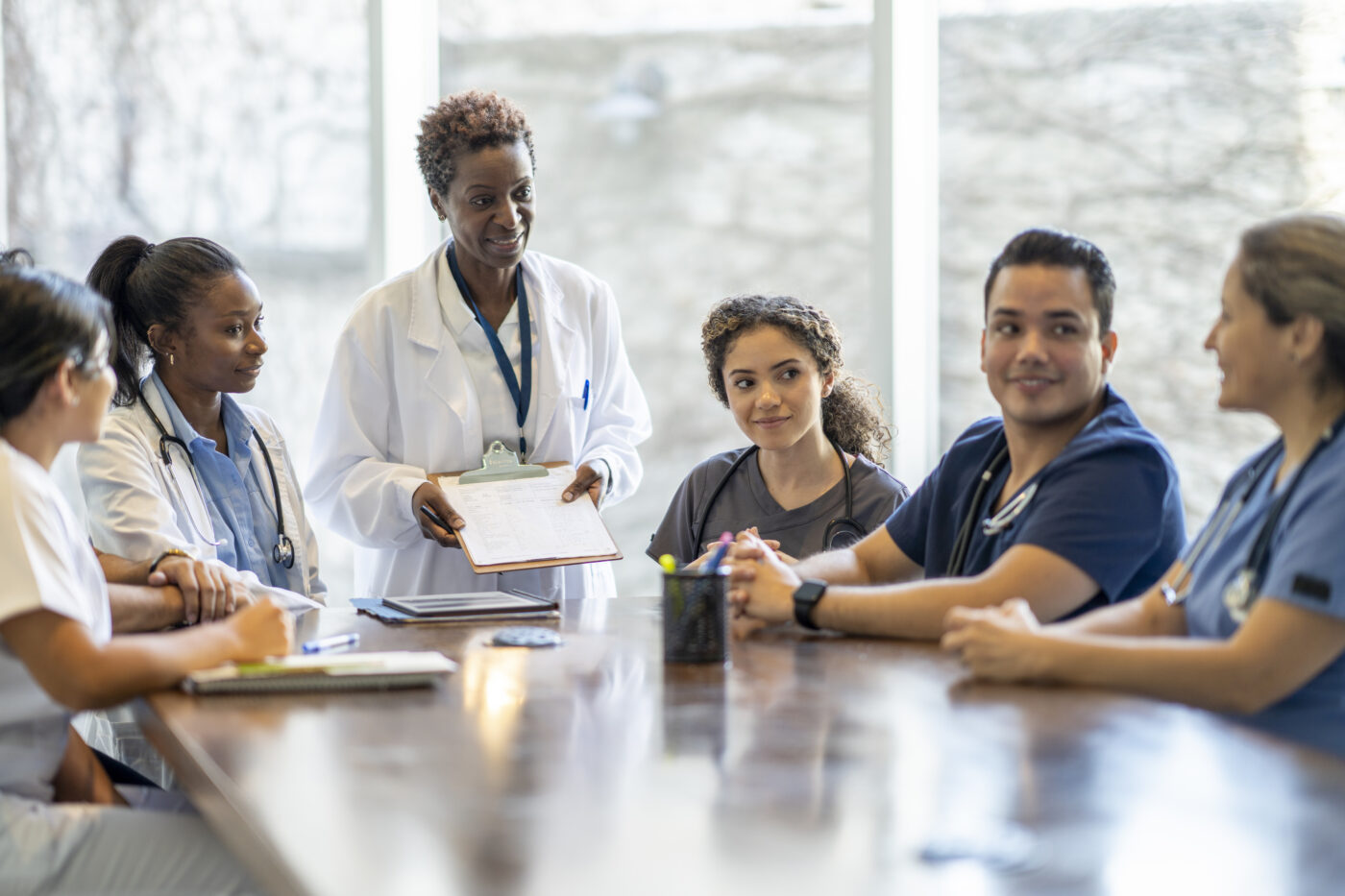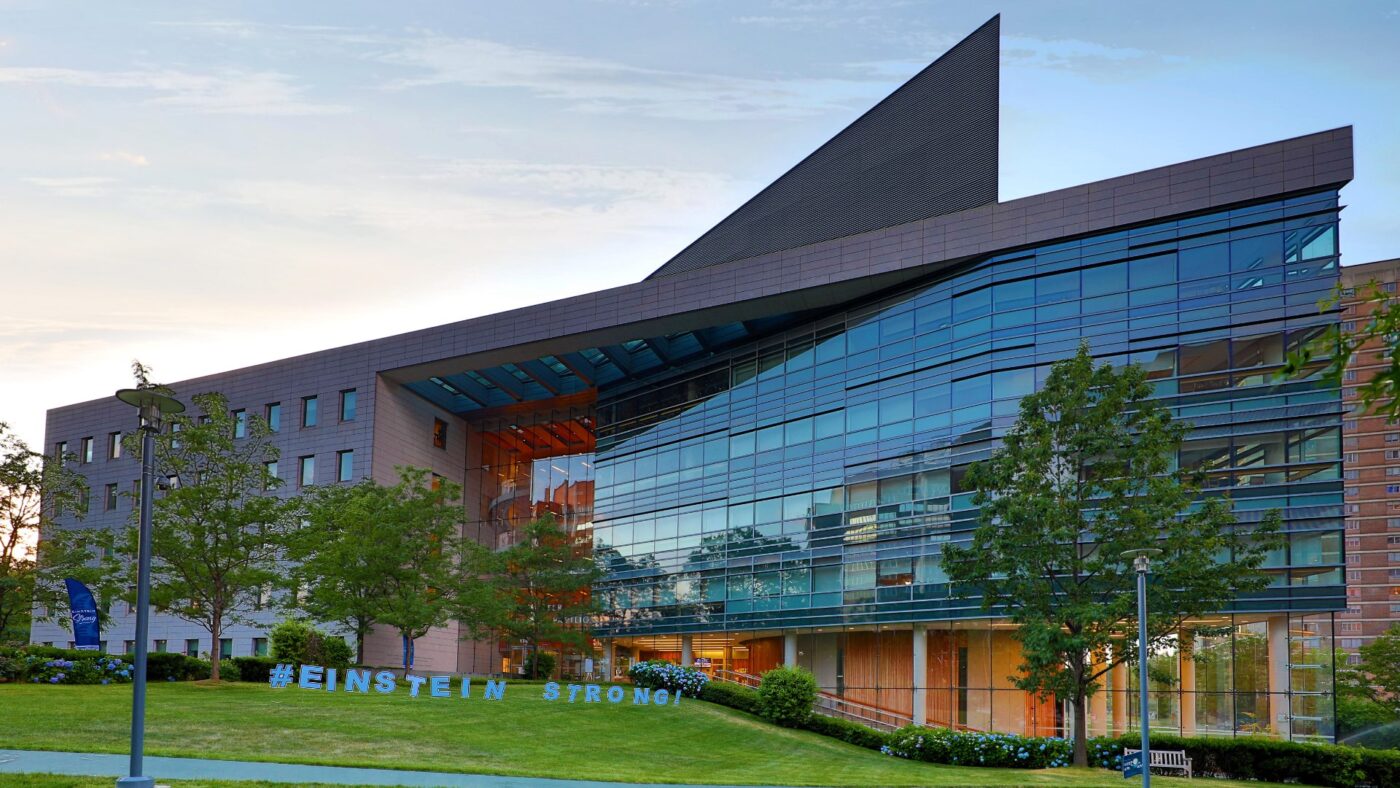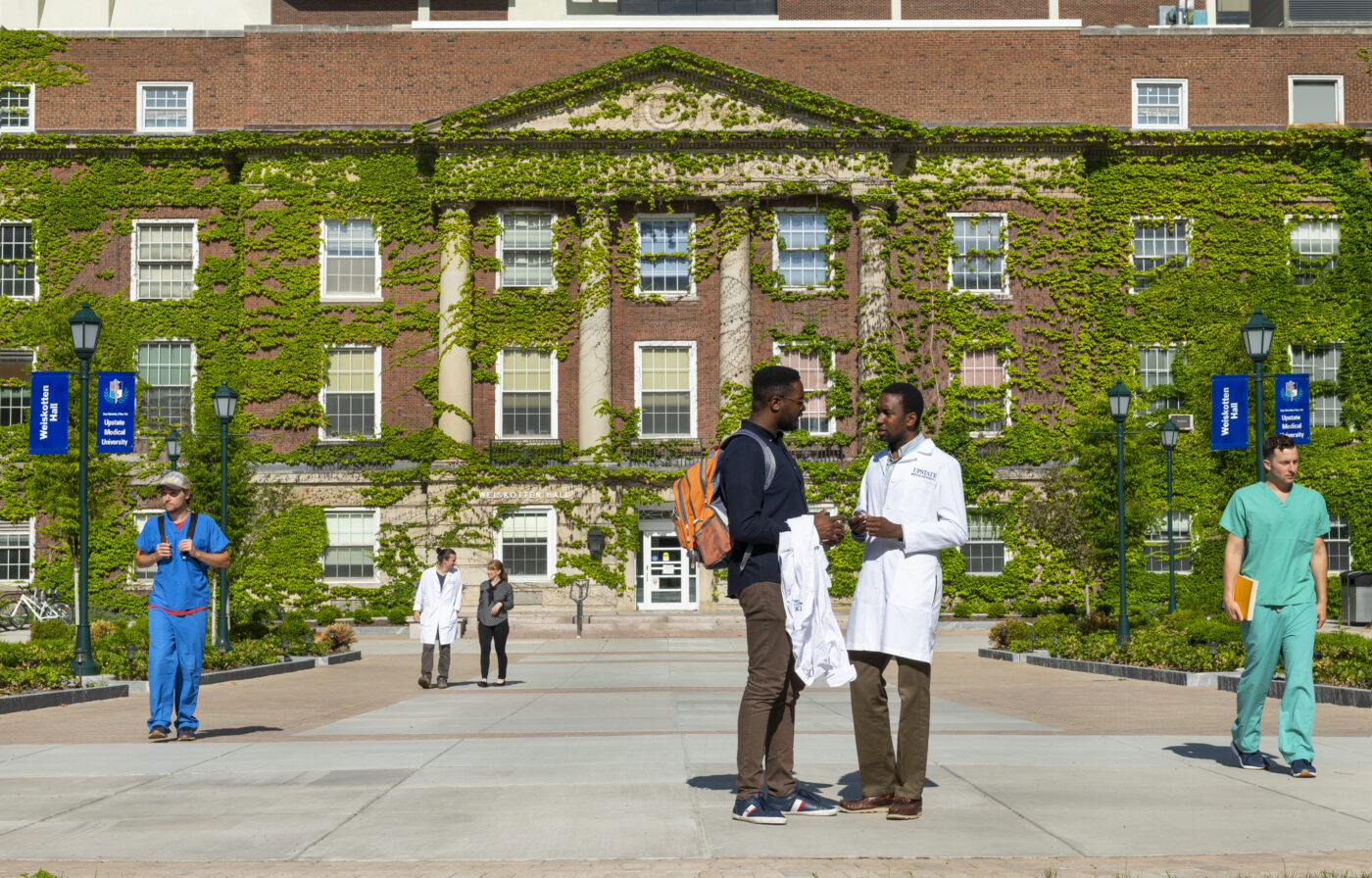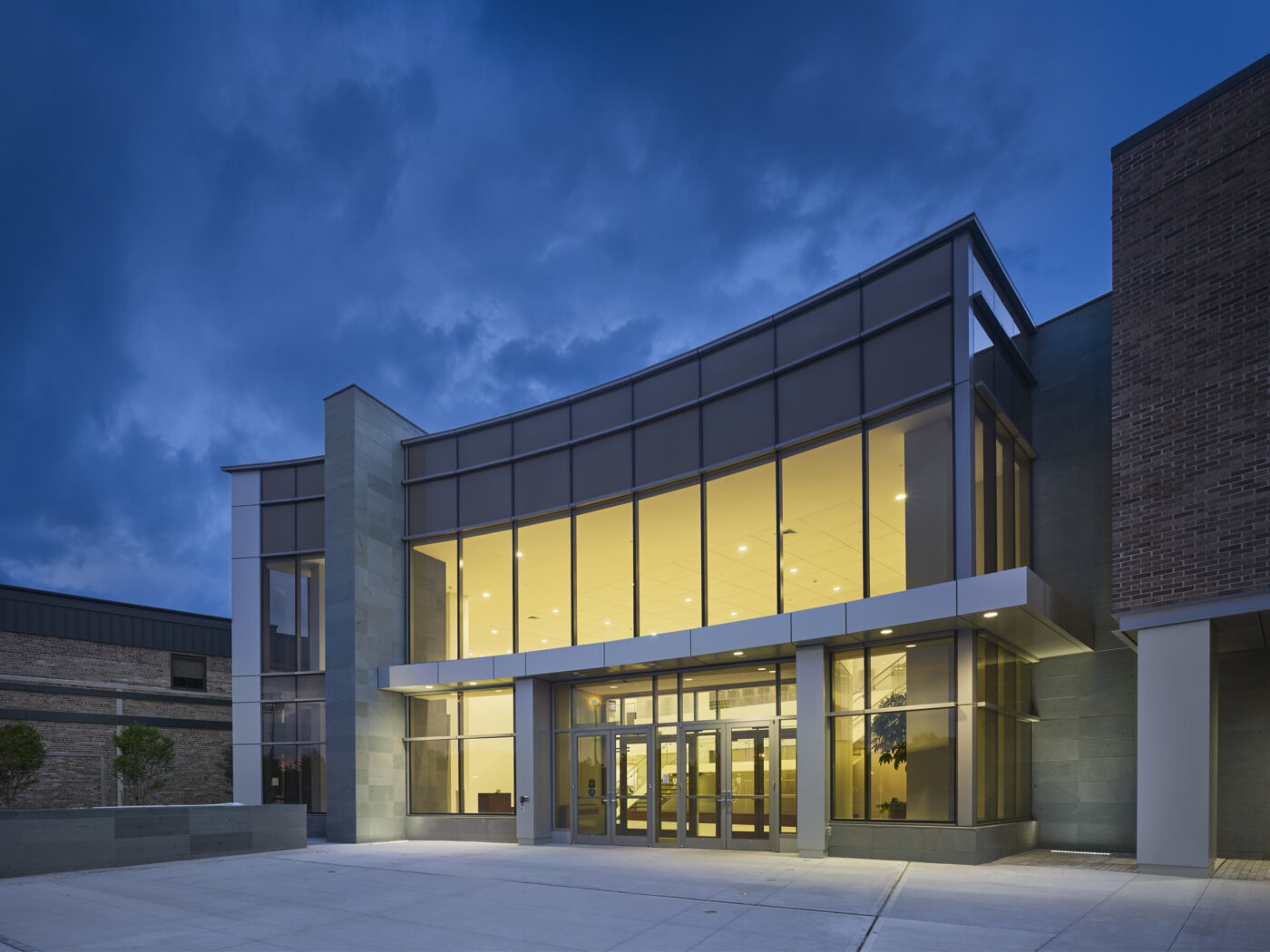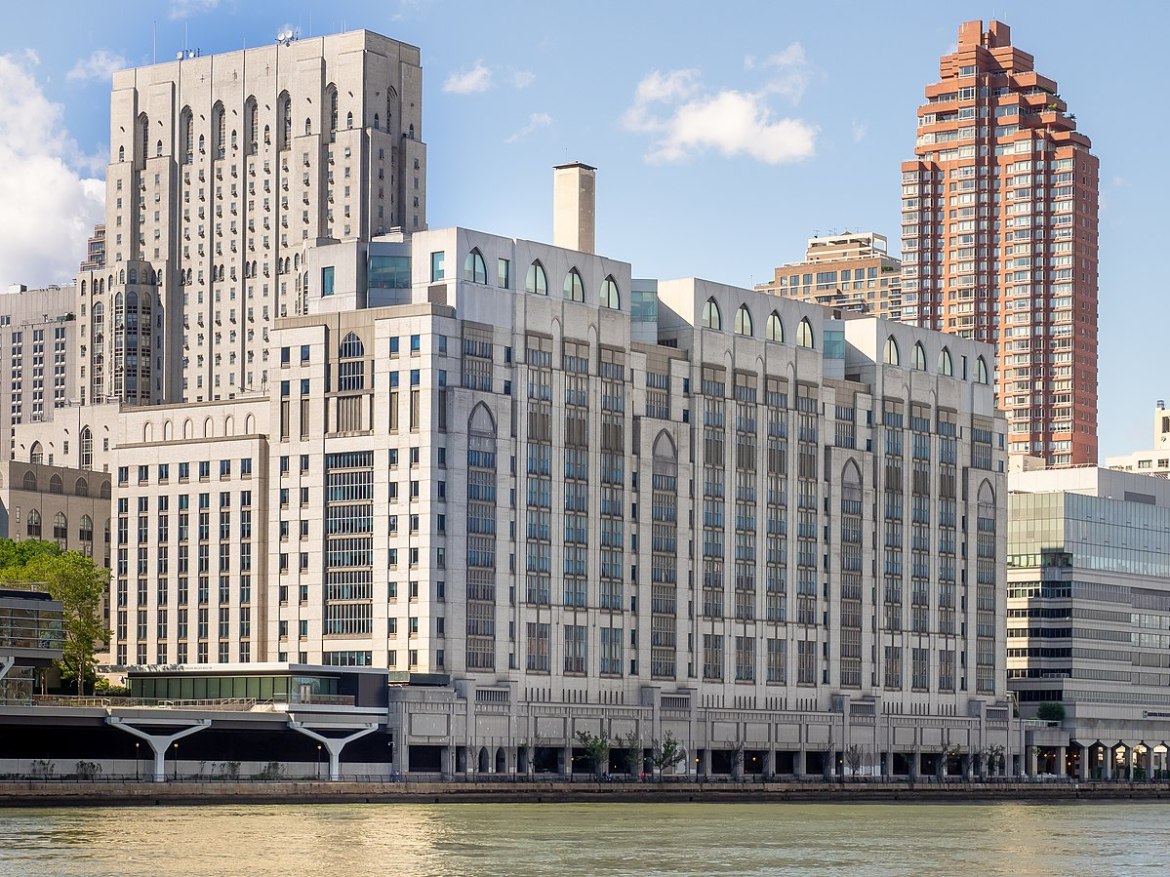NYU Long Island School of Medicine is a medical school in New York unlike any other medical college in the state or even across the country. NYU Long Island School of Medicine is one of just a few medical colleges that offer an exclusive 3-year MD degree program. Aside from this unique program offering, the college also trains and educates students in over 20 specialties.
Be an Informed Applicant
Like all medical schools across the country, New York medical colleges have school-specific requirements and guidelines. Understanding the university’s identity, selection criteria, and programs will help you focus on your application and put your best foot forward.
This article covers:
- NYU Long Island School of Medicine Rankings
- Medical Programs at NYU Long Island School of Medicine
- Selection Factors: What NYU Long Island School of Medicine Looks for in an Applicant
- Academic Requirements
- NYU Long Island School of Medicine Acceptance Rate, Class Profile, and More
- NYU Long Island School of Medicine Tuition and Cost of Attendance
- AMCAS Application and NYU Long Island School of Medicine Secondary Application
- NYU Long Island School of Medicine Secondary Application: Essay Prompts, Sample Answers, and Advice
- Medical School Admissions Consulting
- Voluntary Healthcare Internships Abroad
Personalized Help
Many students find themselves overwhelmed by medical school applications. Each school you apply to has its own unique admissions process. To best help you get into your dream medical school, consider working with an admissions consultant.
A medical school admissions consultant will help and guide you through every stage of the application process while offering personalized feedback and support to help you succeed. International Medical Aid can help you curate a competitive application, highlighting your strengths and tailoring your message to each school.
If you are like many medical students, you will benefit greatly from our personalized medical school admissions consulting.
Why the NYU Long Island School of Medicine?
While NYU Long Island School of Medicine is one of the newest medical schools in Long Island, having launched in 2019, they have already made quite the name for themselves. The school merged with NYU Langone Hospital—Long Island to create one of the country’s premier healthcare systems.
The college’s merger with NYU Langone Hospital—Long Island (NYUMLC) has allowed the college to enhance and expand their commitment to medical research. The college offers students a robust research institute— the NYU Langone Hospital Long Island Research Institute. Here multidisciplinary scientists and physician investigators conduct thorough and rigorous research and clinical studies in a variety of areas, including diabetes and its treatment.
The NYU Langone Hospital—Long Island is also well-known for its various departments and excellent patient care. These departments include NYU OBGYN, NYU Orthopedics, and Long Island Urology. Students from NYULISOM often go on to attend a residency at NYU Langone Hospital or NYU Winthrop Hospital, where they earn an NYU resident salary of roughly $70,000.
NYU Long Island School of Medicine Rankings
- #73 Most Diverse Medical Schools
Medical Programs at NYU Long Island School of Medicine
Before applying, it is crucial to research the different programs offered by the NYU Long Island School of Medicine. This research will aid in your decision of which medical school is a good fit for you and help you focus your application.
In this article, we will be discussing the main degree offered by NYU Long Island School of Medicine. The college offers an MD program and a graduate education program. NYU Long Island School of Medicine does offer a non-degree pharmacy residency program as well.
MD Program
NYU Long Island School of Medicine is one of the only colleges to offer a standard 3-year MD program as opposed to the typical 4-year program. They break this program down into the following 3 phases.
Phase One: Foundational Basic Science Instruction and Research – Students spend 46 weeks completing interdisciplinary preclerkship courses that cover the basic foundational sciences, such as biology, anatomy, and physiology.
Phase Two: Clinical Skills Integration – During this phase, students spend 49 weeks participating in core clerkship rotations at the NYU Langone Hospital—Long Island. They also complete a preparation course for the USMLE (United States Medical Licensing Examination) Step 1.
Phase Three: Advanced Skill Development, Individualized Exploration, and Career Preparation – The final phase of the program spans 37 weeks. The students complete longitudinal educational experiences, rotations in the emergency room, electives, sub-internships, an advanced clerkship, and a Transition to Residency course.
Selection Factors: What NYU Long Island School of Medicine Looks for in an Applicant
What exactly is the NYU Long Island School of Medicine looking for in medical program candidates—MCAT scores, grades, and internships?
Many colleges take a holistic review approach when looking over incoming admissions applications. This means an evaluation of your entire application and trying to get the big picture idea of who you are not only as a candidate but as a person. The AAMC Core Competencies for Entering Medical Students serve as a guide during this review process.
If you want to get accepted into the NYU Long Island School of Medicine program, be sure to focus on and highlight these criteria in your application. Don’t be afraid to reach out for personalized help with your application.
Application Requirements for NYU Long Island School of Medicine
NYU Long Island School of Medicine has specific academic criteria and admission requirements that applicants must meet in order to receive a secondary application. Failure to meet the requirements will result in not receiving a secondary application.
GPA and MCAT Requirements
While NYU Long Island School of Medicine’s admission website does not list any minimum MCAT or GPA required to apply, it is important to ensure that you have competitive scores. The college has very small entering classes (24 matriculants each year), and you will need high scores to make the cut.
Volunteer and Clinical Experience
The college does not list specific criteria for clinical and volunteer experiences, but we highly recommend adding as many meaningful experiences to the work and activities section of your application as possible. Community service, public service, and pre-med shadowing study abroad programs are always good experiences to have and include on your med school application.
What counts as volunteer service and clinical experience:
- Clinical Experience – Experience with patient exposure can be gained through volunteering or working at hospitals, emergency rooms, extended-care facilities, and homeless clinics.
- Volunteer and Community Service – Demonstrate your involvement within your community by participating in community service or volunteering.
- Research – Many medical schools research to be a crucial part of the preparation for medical school. Research experience can be performed at any site and in any discipline. Be able to describe your projects, questions asked, and your role in the conducting of the research.
- Leadership – Leadership can be through a variety of avenues such as in the community, church, at work, or at school organizations can be added to your application.
- Extracurricular Activities – List any extracurricular activities you partake in as the ability to juggle these activities is a strong indicator of how you handle responsibilities and the potential stress and demand of medical school.
NYU Long Island School of Medicine Letters of Recommendation
Being a competitive applicant includes providing letters of recommendation. The letters you submit should be compelling and demonstrate your potential for success in the medical field.
These letters should be written by people who you trust and who can accurately portray your integrity, interest in medicine, academic ability, interpersonal skills, and resiliency. For more information or details about who is best suited to write you a letter of recommendation, check out the NYULISOM website pertaining to admission requirements. They neatly outline examples of who should write academic letters of recommendation and who should write non-academic letters of recommendation.
Here are the NYU Long Island School of Medicine guidelines and requirements for submitting letters of recommendation. All letters of recommendation should be submitted through the AMCAS Letters Service. Please keep in mind that the majority of medical colleges prefer letters of recommendation written by a Pre-health Advisory Committee.
The college prefers a composite letter written by a Pre-Health Advisory Committee, but in the case that an applicant’s college does not have such a committee, NYULISOM will accept 3 letters of recommendation written by individuals; two of which must be science faculty members.
Required Coursework for NYU Long Island School of Medicine
NYULISOM states that they do not mandate pre-medical coursework, so they do not provide a list of required courses. However, they do prefer applicants to have a high level of knowledge in the following subjects.
Biology
Physics
Chemistry
Genetics
Statistics
English
Psychology
Sociology
Does NYULISOM Require the CASPer exam?
The CASPer exam is an online test that is required by some medical schools. This exam assesses a candidate’s non-cognitive and interpersonal skills. Designed to complement traditional admission methods of a college by judging the applicant’s professional and personal competencies.
As of 2023, the CASPer exam is not a required component of the NYU Long Island School of Medicine application process.
NYULISOM Acceptance Rate and Admission Statistics
The NYU Long Island School of Medicine has one of the most competitive acceptance rates across the country, with an overall acceptance rate of 0.55%. If you want to attend NYULISOM, you will need to build a strong application. Students can do this through the help of medical school admissions consulting offered by IMA.
Let’s review the most recent entering class stats.
- 4,332 Total Applicants
- 24 Matriculants
- Average MCAT Score – 517
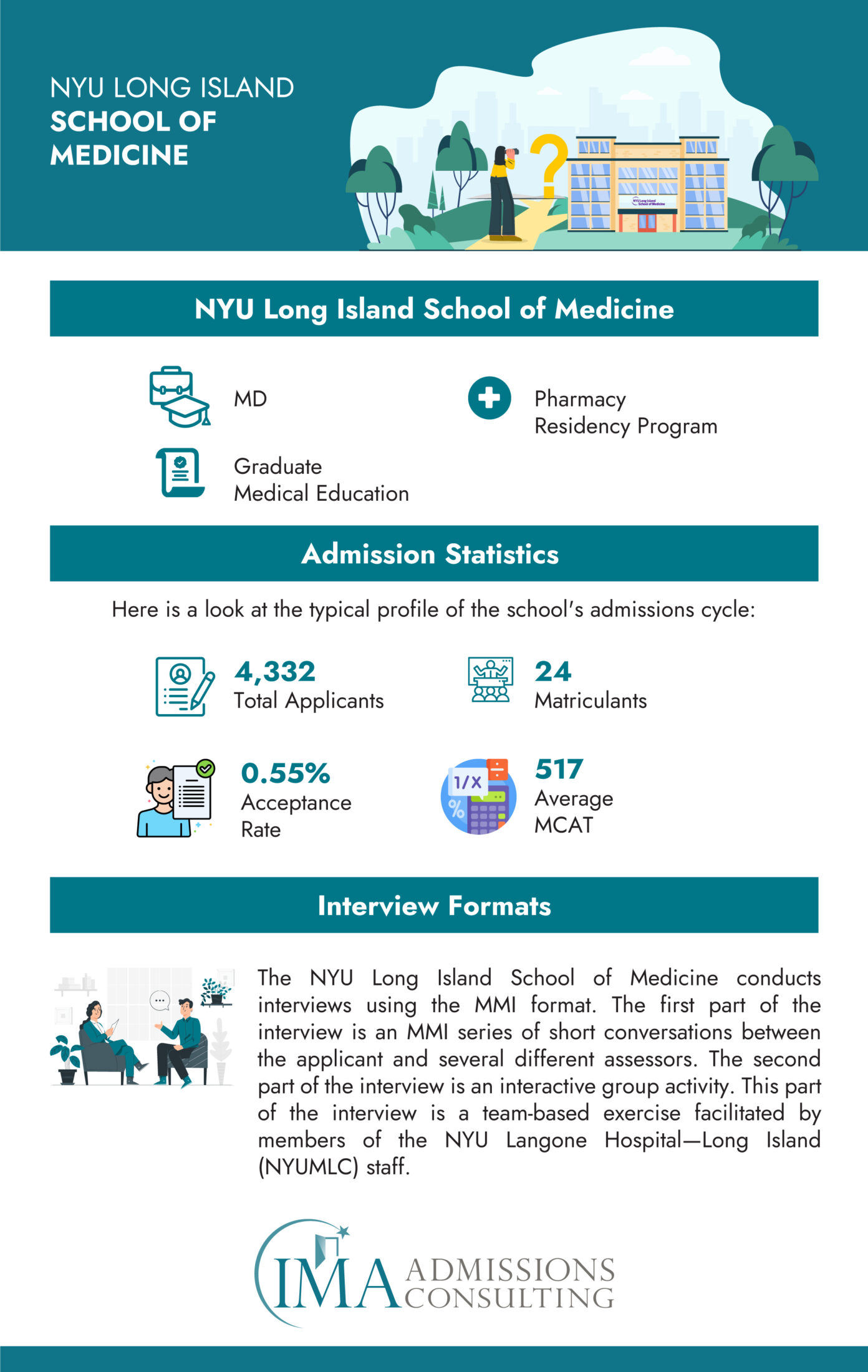
NYULISOM Tuition and Cost of Attendance
In addition to tuition and fees, NYULISOM students should budget for incidentals, textbooks, supplies, and living costs. The Office of Student Financial Services has provided the following estimated figures for the upcoming school year.
Year 1:
- $62,830 Tuition and Fees
- $7,208 Health Insurance
- $21,296 Living Expenses
- $1,200 Books and Supplies
- $92,534 Total
Year 2:
- $62,830 Tuition and Fees
- $7,208 Health Insurance
- $19,596 Living Expenses
- $400 Books and Supplies
- $1,290 USMLE Fees
- $91,324 Total
Year 3:
- $62,830 Tuition and Fees
- $7,208 Health Insurance
- $17,914 Living Expenses
- $400 Books and Supplies
- $88,352 Total
AMCAS Primary Application and NYULISOM Secondary Application
The AMCAS is the primary application for almost every medical school. Your primary application is sent to all of the medical schools that you apply to. For the NYULISOM, it takes approximately four to six weeks for your AMCAS primary application to be reviewed. While four to six weeks is the standard amount of time it takes for someone to review your initial application, this length can be affected by a variety of factors. If you do not hear back within six weeks, do not become immediately discouraged.
After receiving your primary application, the NYU Long Island School of Medicine will invite you to fill out the school’s secondary application. All secondary applications are school specific, and these applications include questions that the school feels are important in determining if you will be a good fit for the institution.
Please note that you will not be invited to complete the NYU Long Island School of Medicine secondary application if you do not meet the admissions requirements outlined previously in this article. For a refresher on what the required premedical coursework is, go back to the required coursework section. You will also want to note if you have participated in any of the additional recommended coursework outlined by the NYULISOM.
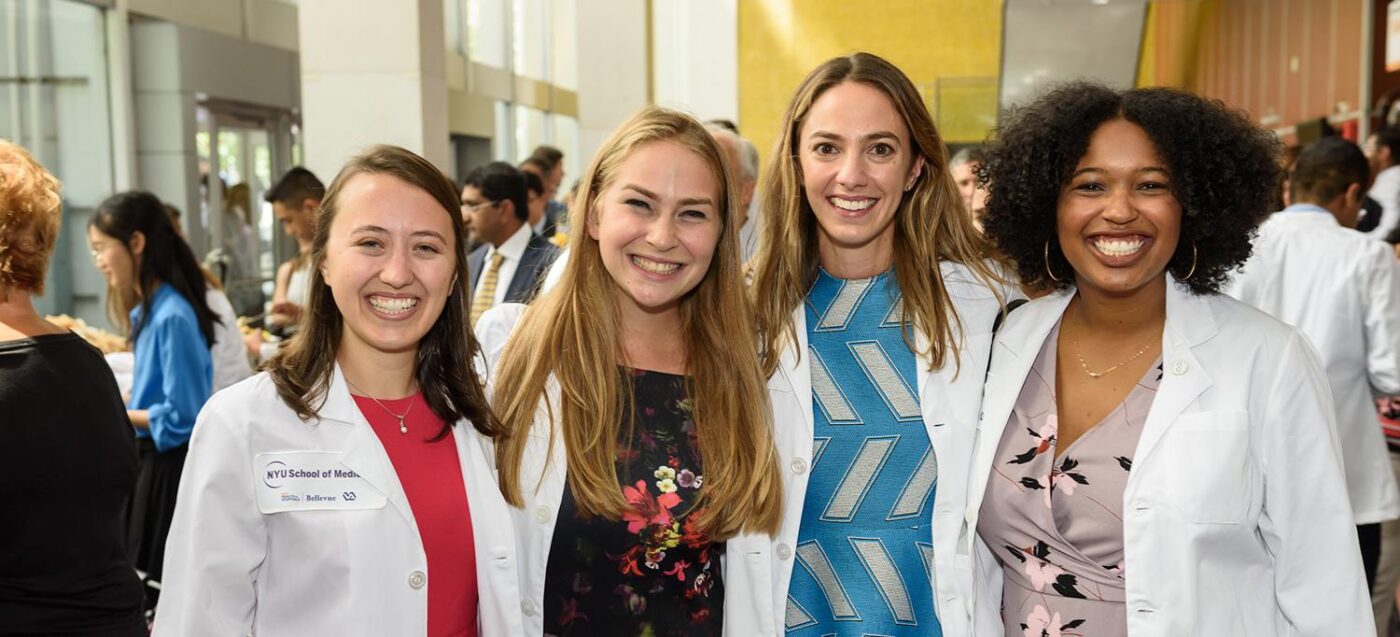
NYULISOM Secondary Application: Essay Prompts, Sample Essay Answers, and Advice
Completing your secondary application is a critical part of applying to a medical school. In the secondary application, you can express your character, ambitions, motivations, and more. This is your chance to demonstrate what makes you a unique and ideal candidate for the NYU Long Island School of Medicine program. Here are a few tips for submitting a successful secondary application to the NYULISOM:
- Read and pay close attention to each essay prompt on the application and address all of its questions in your response.
- When supporting your responses, use concrete evidence from your academic, professional, and extracurricular experiences.
- Do not simply repeat information from your AMCAS. In the same realm, use the secondary application as an opportunity to explain further anything that you feel you did not get to go into great detail about in the primary application.
- Thoroughly proofread and edit your application materials before submitting them.
- Write each and every essay in a clear and concise manner. Omit any unnecessary words and sentences, avoid filler, and ensure you stay on topic per the essay’s prompt.
- Consider utilizing IMA’s admission consulting. Writing thousands of words for medical school applications can be time-consuming. Admissions consultants help by taking an in-depth look at your application and finding areas for improvement.
The NYU Long Island School of Medicine secondary application consists of several essay prompts to help the admissions committee get to know you better, not only as a candidate but also as an individual.
Essay #1
If applicable, please comment on significant fluctuations in your academic record which are not explained elsewhere on your application. (no limit)
For those applicants that this essay prompt applies to, you should take your time to write a clear and concise, but not overly wordy response explaining why you have fluctuations in your academic record.
Essay #2
If you have taken any time off from your studies, either during or after college, please describe what you have done during this time and your reasons for doing so. (no limit)
If you have taken a gap year at any point in your education, be sure to explain this to the admissions committee thoroughly. Taking a gap year is becoming more common nowadays, and if you have taken a gap year yourself, you can word your response in a positive way and highlight experiences or activities you participated in during this gap that will further your education, skills, or improve your application (volunteer experiences).
Essay #3
In light of the COVID-19 public health emergency, how do you view your potential role as a frontline healthcare provider? (2500 characters)
This prompt allows you to discuss how you can make a difference in the medical field and help those while at the frontlines of a medical crisis.
Here is a sample answer:
Healthcare workers who have had to serve on the frontlines during pandemics, epidemics, and other crises are of the utmost importance in the medical profession and help keep the population safe and cared for. I have long since held this belief and as the world continues to suffer the effects of the COVID-19 pandemic, my opinion of these courageous frontline workers is further strengthened. Frontline workers put their lives on the line daily as they directly come into contact with those who are ill with a variety of dangerous and often deadly viruses and ailments.
While I never envisioned myself as one day potentially serving as a frontline worker; in light of the recent and still ongoing global pandemic, I believe my future potential role as a frontline healthcare provider will be crucial to the community I hope to serve one day. I view serving as a frontline physician during such a time of medical crisis as something I would gladly do with pride to help those suffering in my community. Ideally, I would like to be serving at NYUMLC or NYU Winthrop Hospital to best aid the most individuals.
As a future medical professional who hopes to serve in a large hospital or clinical environment, if another pandemic or medical crisis emerged, I hope to serve as many in my community as possible. Working as a physician in a hospital in a day to day practice will also allow me to aid my community, but a frontline worker would be responsible for aiding many more, including a large majority of medically underserved populations. While I hope there is not a need for me to be placed on the frontlines, such as another global pandemic, if this were to occur again in the future, I would want to help make a difference for those in rural and underserved communities. Ideally, volunteering to go to medically underserved areas to provide medications and treatments to those who are unable to reach a medical facility or would normally not have access to treatment. For this reason, I aspire to be a well-trained and knowledgeable physician in case the need for me to put myself on the frontlines to help the medically underserved ever arises. Overall, I view my potential role as a frontline medical provider to be of the utmost important if I were ever needed to step into the role and help those in the state of New York and beyond.
Medical School Admissions Consulting
At International Medical Aid, we make it a point to offer aspiring medical professionals thorough and informative content. We understand that getting into med school is hard work, and we want you to succeed during the application process.
One of the best ways to boost your medical school program application is with the expert help of an admissions consultant. Whether you need guidance writing your essays, developing an application strategy, or navigating the process, we are here to help.
We recommend taking a moment to schedule a free consultation with IMA here.
Voluntary Healthcare Internships Abroad
IMA’s voluntary healthcare internships provide students with the opportunity to shadow doctors, gain valuable medical field experience, and work in hospital and clinical environments. All of the internships we offer are intensive and patient-facing. Through International Medical Aid’s pre-med shadowing study abroad programs, aspiring med students gain real-life clinical experience and become further prepared for medical school.
The internships go far beyond creating a compelling medical school application. IMA’s programs serve struggling areas and populations across the globe. By interning abroad, you can develop your communication skills, serve the medically underserved, and broaden your perspectives.
There is a lot to learn when it comes to our pre-med shadowing study abroad programs, so please take the time to explore the programs on our website.
Good Luck!
We want to wish you good luck as you navigate the med school application process. Remember to be strategic about your application, take your time, and do not hesitate to ask for help.
Applying for medical school programs is often a stressful and overwhelming process that is hard for new students. If you feel you may need additional help with your application, essay responses, or prepping for your upcoming semester, don’t forget to utilize IMA’s consulting services.
If you are considering applying to any other medical schools in New York or other states, we have ultimate guides for most med schools available on our website. Whether you want to know “how medical schools stack up to other medical schools near me” or just want to check out guides for other colleges, don’t forget to check out our ultimate guides.
- TOURO College of Osteopathic Medicine
- Albany Medical College
- Norton College of Medicine at Upstate Medical University
- Jacobs School of Medicine at the University at Buffalo
- Hofstra Zucker School of Medicine
- Weill Medical College of Cornell University
- University of Rochester Medical School
- Icahn School of Medicine at Mount Sinai
- Renaissance School of Medicine at Stony Brook University
- Albert Einstein College of Medicine
- Ohio University Heritage College of Osteopathic Medicine
- Northeast Ohio Medical University (NEOMED)
- University of Cincinnati College of Medicine
- University of Toledo College of Medicine
- Wright State University Boonshoft School of Medicine
- Ohio State University College of Medicine
- Rowan University School of Osteopathic Medicine
- Hackensack Meridian School of Medicine (HMSOM)
- Rutgers New Jersey Medical School (NJMS)
- Rutgers Robert Wood Johnson Medical School
- Cooper Medical School of Rowan University (CMSRU)
- A.T. Still University Kirksville College of Osteopathic Medicine
- Saint Louis University School of Medicine
- University of Missouri Medical School
- Kansas City University (KCU)
- UMKC School of Medicine
- New York Medical College
- University of Pittsburgh School of Medicine
- University of Wisconsin Medical School
- VCU School of Medicine
- University of Maryland School of Medicine
- Case Western Medical School
- University of North Carolina Medical School
- University of Florida Medical School
- Emory University School of Medicine
- Boston University College of Medicine
- California University of Science and Medicine
- UC San Diego Medical School
- California Northstate University College of Medicine
- Touro University of California
- CHSU College of Osteopathic Medicine
- UC Davis School of Medicine
- Harvard Medical School
- UC Riverside School of Medicine
- USC Keck School of Medicine
- UT Southwestern Medical School
- Long School of Medicine at UT Health San Antonio
- University of the Incarnate Word School of Osteopathic Medicine
- UT Austin’s Dell Medical School
- UTMB School of Medicine
- McGovern Medical School at UT Health
- Johns Hopkins School of Medicine
- McGovern Medical School at UT Health
- The University of Texas Rio Grande Valley School of Medicine
- UNT Texas College of Osteopathic Medicine
- University of Houston College of Medicine
- Texas A&M College of Medicine
- Johns Hopkins Medical School
- Baylor College of Medicine
- George Washington University School of Medicine
- Vanderbilt University School of Medicine
- St. George’s University School of Medicine
- Lake Erie College of Osteopathic Medicine (in Pennsylvania)
- Sidney Kimmel Medical College at Thomas Jefferson University
- Wake Forest University School of Medicine
- Western University of Health Sciences (in California)
- Drexel University College of Medicine
- Stritch School of Medicine at Loyola University Chicago
- Georgetown University School of Medicine
- Yale School of Medicine
- Perelman School of Medicine
- UCLA Medical School
- NYU Medical School
- Washington University School of Medicine
- Brown Medical School


